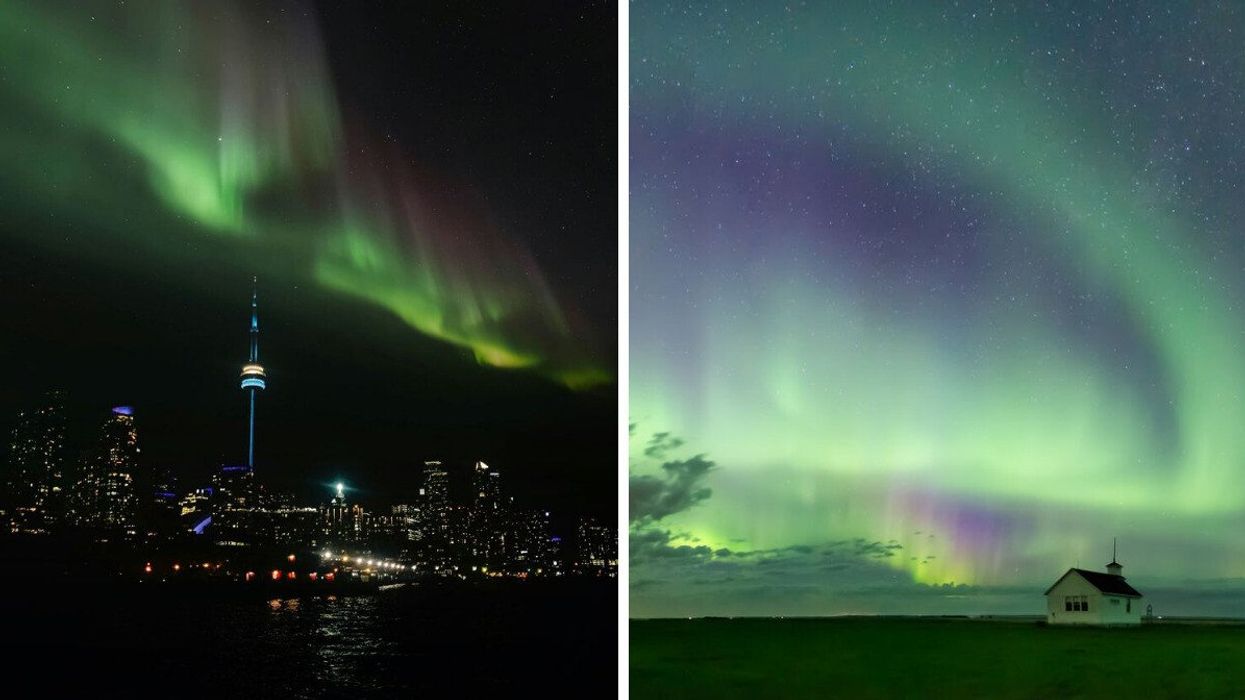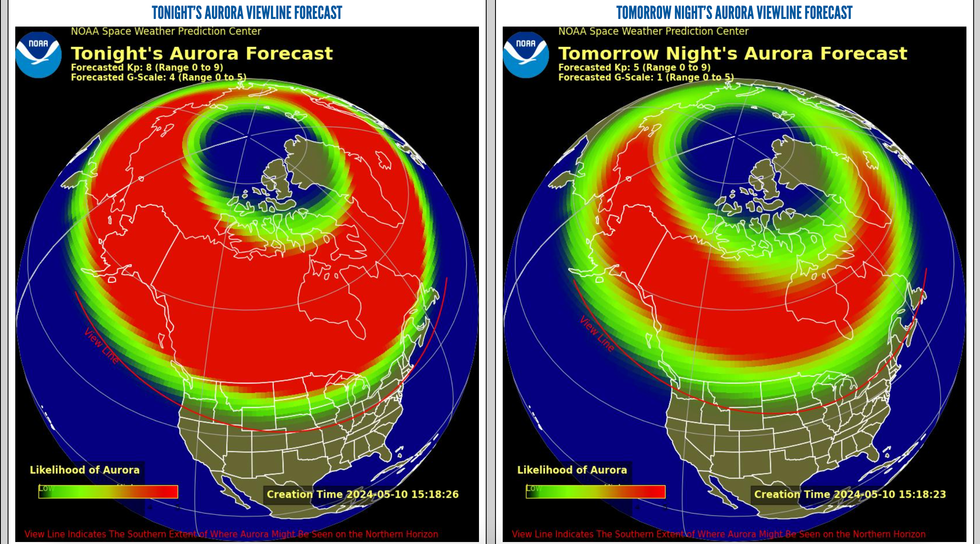The northern lights could shine across Canada tonight and may even be seen in southern Ontario
The lights could dip as far south as the U.S. ✨

The northern lights in Toronto. Right: The northern lights in Saskatchewan.
Look up! The northern lights could be visible across Canada this weekend due to a major solar storm, and almost all of the country will have a chance to see it.
According to space weather forecasters, several bursts of plasma from the sun are likely to reach Earth, leading to "highly elevated" geomagnetic activity and the possibility of widespread auroras, even as far south as southern Ontario.
The U.S. National Oceanic and Atmospheric Administration issued a Severe (G4) Geomagnetic Storm Watch, the first since 2005, on Thursday.
According to the watch, multiple coronal mass ejections (CMEs) are anticipated to arrive at Earth by late May 10, or early May 11.
Once they do, these bursts of plasma and magnetic field released from the sun's hot outer atmosphere can filter into Earth's upper atmosphere around the magnetic poles, creating the phenomenal display of dancing colours we know as the northern lights.
While typically the northern lights can only be seen at certain times around the North Pole, the severity of this storm will push them far south, all the way down to parts of the U.S., and make for aurora displays across Canada.
According to the U.S. NOAA's Aurora Dashboard, which provides a prediction of the aurora's visibility over the coming nights, most of Canada will have a strong likelihood of seeing aurora.
The colours on the map represent the chance of seeing the aurora, with red indicating the highest probability, followed by green, with clear areas of the map having the lowest chance.

As the forecast shows, B.C., the prairies provinces, most of Ontario, Quebec and Labrador will have a high likelihood of seeing the northern lights. Cities like Calgary and Edmonton will have some of the best views, with Vancouver also having a decent shot at catching auroras.
In Eastern Canada, cities like Toronto and Montreal will also have a fair chance of seeing the northern lights, but you'll want to get away from city lights for the best viewing conditions.
In Atlantic Canada, parts of New Brunswick, Prince Edward Island and Newfoundland will have a moderate chance of seeing the northern lights in the sky.
While Nova Scotia is still within the viewline on the aurora map (the southernmost locations from which you may see the aurora on the northern horizon) chances of northern lights here will be low.
As for when to look for the northern lights, the NOAA says the best aurora viewing is usually within an hour or two of midnight (between 10 p.m. and 2 a.m. local time).
You'll want to be somewhere dark, away from city lights. Cloud cover may also affect whether or not you're able to see the northern lights in your region.
If you don't catch the show tonight, there still may be hope — according to the NOAA, additional solar eruptions could cause geomagnetic storm conditions to persist through the weekend, so you may get another chance to see the lights.
Good luck!
This article's cover image was used for illustrative purposes only.